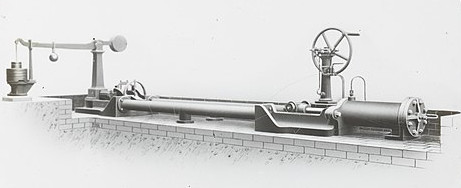Yours is a challenge
Granted, you don't define when during the Medieval Era your people exist. The Medieval period was from 476ce to about 1450ce. There were advances in hydraulics and mechanics by the 1450s that would appear like magic to the people of 476ce.
But there might be a few things that could apply anywhere in that period.
Magnetism
While magnets have been used since at least 600bc, the manufacture of small, powerful magnets certainly does not. A small neodymium magnet mounted in a ring would easily move bits of ferrous materials around — and that would appear like telekinesis. or use it to move a ferrous rod in a lock, a lock that can only be opened by the magnet! We have such "locks" in retail stores today. They're a common effort to avoid shoplifting. We dont' even really think about them. but hundreds of years ago... magic.
Electromagnetism
And that brings us to electromagnetism. The first wire mill was created in England in 1568, 100 years after the end of the medieval era, which means that, if shown how, people in the 1300s-1400s could manufacture it. Extrude the wire, coat it with laquer, wind it around a ferrous core, and you have an electromagnet. Imagine holding a door closed with one, only to open upon the owner's command! A strong enough magnet could cause something to appear like it could fly through the air.
Flash paper (specific uses of chemistry)
Chemistry has been around since the first person discoverd mixing a tart fruit with the right kind of beet made it taste better. So, by itself, chemistry isn't enough. But there are specific applications of chemistry that weren't understood during the medieval period. Such an application is flash paper.
Flash paper is used today to add drama to a good magic act — but we all know today that it's just part of the act, not real magic. A paper that someone can write on... use... and yet burns away to nothing would be magical.
Similar uses would be the chemistry of batteries, water purification tablets, Bleach (which was invented in 1787 to whiten textiles). Search for specific applications of chemistry invented at least after 1600 and you'll have a good candidate for magic before 1400 that could be replicated.
Springs
While a non-coiled spring was used as an archery bow 64,000 years ago, coiled springs were invented in 1763. Combined with an advancement in metalurgy that wouldn't come around until the mid-1800s and you get something that's easily hidden that has many magical uses in the medieval era. Similar to a magnet, springs would allow someone to move large, heavy objects (perhaps combined with leverage).
But, why were people actually accused of witchcraft?
While many (if not most) accusations of witchcraft over the last 2,000 years were likely emotionally (read: revenge) motivated, the practice of herbology (already mentioned by so many in other answers) caused many to be accused. The knowledge not only allowed them to do things people didn't yet generally understand — but often to do things that in some cases were philisophically or religiously assumed to be a power that belonged only to God.
And so I mention it to point out that any invocation of science that was perceived to be the province of diety was often considered magic. Saving life and repairing bodies is only one such way of expressing this idea. A use of mirrors (common in today's Las Vegas magic shows!) to let someone "disappear" would also fall into this category, as would the use of a chemical fertilizer to make plants grow remarkably better or the use of acoustic waveguides to hear secrets.
Use the idea of religion to identify behaviors, practices, and "miracles" that, if not performed by diety or the initiates of the faith, are automatically identified as magic — whether the average person otherwise would realize it's not magical or miraculous... or not.

